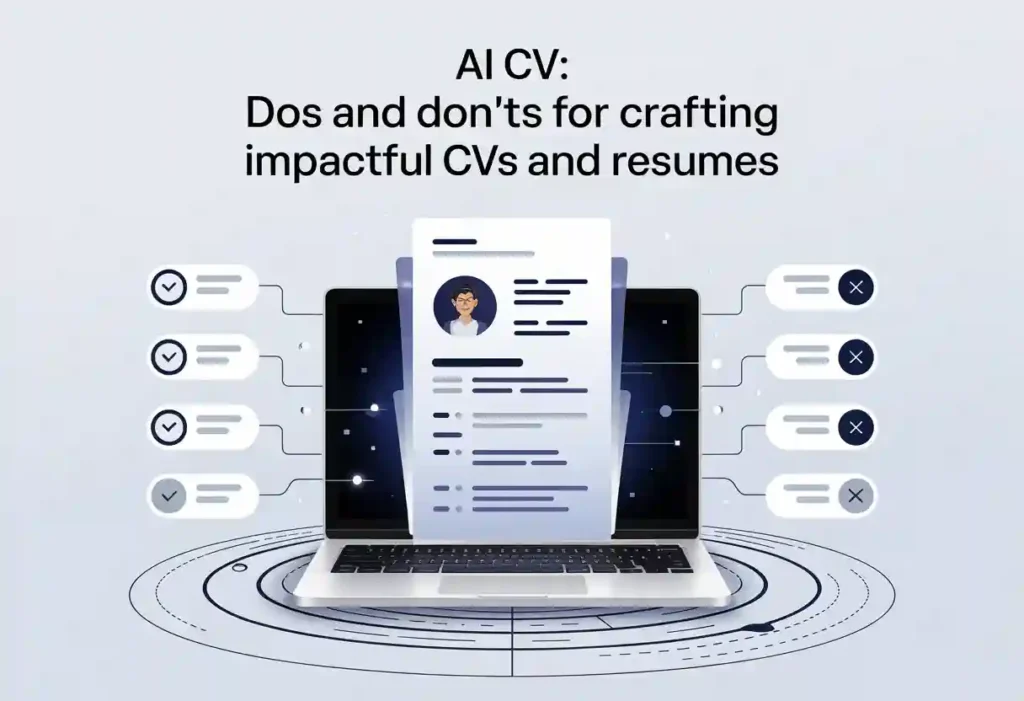Why Real-World Experience Wins Jobs
When recruiters narrow down their list of candidates, they’re often left with two choices:
- A candidate with all the right qualifications but minimal job experience.
- A candidate with fewer qualifications but plenty of first-hand experience and references to confirm their practical skills.
Who’s going to get the job?
Don’t be surprised if the candidate with fewer qualifications gets offered the job before the candidate who’s perfect on paper.
Excluding a handful of professions, where proof of formal training is necessary, relevant job experience and genuine references are more valuable than qualifications.
In short, work experience and functional skills trump theoretical knowledge.
This also applies when you’re looking for a job.
That’s why it’s so challenging for recent graduates to find a job without experience.
Why Is Job Experience So Valuable?
By the time you’ve finished school, college, and university, the average graduate will have spent over ten years in formal education.
Yet, when graduation day arrives, and students begin to look beyond the classroom, they receive a new label: FRESH GRADUATE.
Despite a hard-earned degree, this term is synonymous with ‘zero work experience’.
It warns recruiters that their candidates may be unprepared for daily workplace challenges.
Finding a job with no experience needed is rare.
Therefore, graduates without job experience must build their careers almost from scratch.
They must accept entry-level, unpaid, or undergraduate-level jobs to bulk up their CV.
Sound frustrating?
Trust me, it is!
Quite simply, having a degree no longer guarantees a well-paid job.
Despite years of study and substantial student loans, you’re still expected to have significant work experience when you take off your graduation hat.
How To Get Job Experience
Getting a good job with no experience is unlikely.
The best way to ensure you don’t become qualified but unemployed is to get job experience on your resume.
Below you’ll find our professional advice on how to get work experience.
Volunteering
Charities and non-profit organizations are constantly looking for new volunteers.
Many require digital assistance.
You aim for a web design, graphics, digital marketing, or copywriting job.
Nonprofits are an excellent place to put your knowledge to good use.
Likewise, non-profits often require volunteers to organize fundraisers and campaigns or deliver educational talks.
This is ideal for anyone looking for work in the education or charity sector.
Seasonal Jobs & Part-Time Jobs
Fixed-term contracts and part-time jobs are great for gaining the general skills you will need later.
Even if the job is in a completely unrelated field to your degree, you’ll still learn valuable skills.
As an example, I began my working life while still at school.
By the time I’d finished college, I had three years of experience.
I was directly promoted to supervisor when the summer holidays began.
Although it wasn’t the field I aspired to work in permanently, the job allowed me to learn valuable skills.
I gained experience in customer service, administration, and team leadership, which was helpful when applying for a job in unrelated fields.
Meanwhile, many of my peers struggled to find jobs, and qualified graduates worked as team members alongside me.
Work an undergraduate-level job for experience, and you won’t have a CV with no job experience.
Similarly, weekend jobs are still great Job experience examples for resumes.
In addition, you’ll have a reference, other than your tutors, that future employees can contact.
Internships
Interning for a company in the industry you want to work in is the best way to gain relevant work experience.
When you land an internship that matches your career goals, you’ll get experience doing the kind of work you’ll be doing post-graduation.
Notably, interns often receive a lower wage than entry-level employees.
Alternatively, the company may provide a stipend payment or cover expenses only.
While internships are not great money-spinners, you gain experience and network connections from what you lose in pay.
Freelancing
Another way to get relevant experience for a job is to freelance.
Because freelance jobs can take anything from one day to a few months or years, it doesn’t need to replace your current job or studies.
That makes it a practical option for career changers and undergraduates.
Completing a handful of freelance jobs might be all you need to bulk up your CV.
However, freelancing can also lead to full-time and permanent job offers.
Sandwich Degrees
We recommend considering universities that offer ‘sandwich degree courses.
These are great options for anyone who hasn’t begun university studies yet.
Sandwich courses contain the same content and provide the same qualification as three-year degree courses, but take four years to complete.
They typically incorporate a gap year between the second and third years of study.
This allows students to gain a full year of industry experience and connections before completing their studies.
Usually, universities that run these courses also offer support for finding work experience and connections with related companies.
How Can Parents Help Their Kids Gain Job Experience?
Parents and guardians have a part to play, too.
Instead of allowing your undergraduate children to rest for the entire summer holidays, encourage them to learn practical skills.
This will supplement the theoretical learning they’ve been doing throughout the school year.
If you have a private office or work from home, why not introduce your teenage children to administrative roles during the school holidays?
We know that going to the cinema is more fun.
But learning basic bookkeeping, filing, and answering formal calls, emails, and letters is an excellent practice.
When they apply for their first job, they’ll already have several entry-level skills that employers will appreciate.
Suppose you can teach your children entry-level job skills before graduation.
They’ll feel more confident and have a better chance of finding a job after graduation.
Even if you’re not confident teaching business skills, there are other ways that you can help your children get job experience for a CV.
Don’t wait till they finish school!
Instead, urge them to look for a seasonal job.
Alternatively, encourage your child to volunteer in a role related to their studies.
Remember that unpaid work still counts as job experience.
Can You Find a Job with No Experience?
Finding a job is challenging, especially with no relevant work experience.
Unfortunately, it’s widespread for fresh graduates and career changers to find themselves in this challenging position.
Often, practical work experience is as necessary, if not more important, than the qualifications on your CV.
Particularly if you graduated some years ago.
That’s why you must prepare yourself with work experience before you graduate or leave your current job.
The best ways to get work experience include volunteering, seasonal jobs, entry-level jobs, internships, and fixed-term contracts.
Finally, don’t wait until graduation to look for work experience opportunities.
The earlier you begin, the more experience you’ll gain.
You’ll also have the chance to evaluate your career choice and adapt your studies when you’ve sampled the job you’re aspiring to.
Keep Reading



